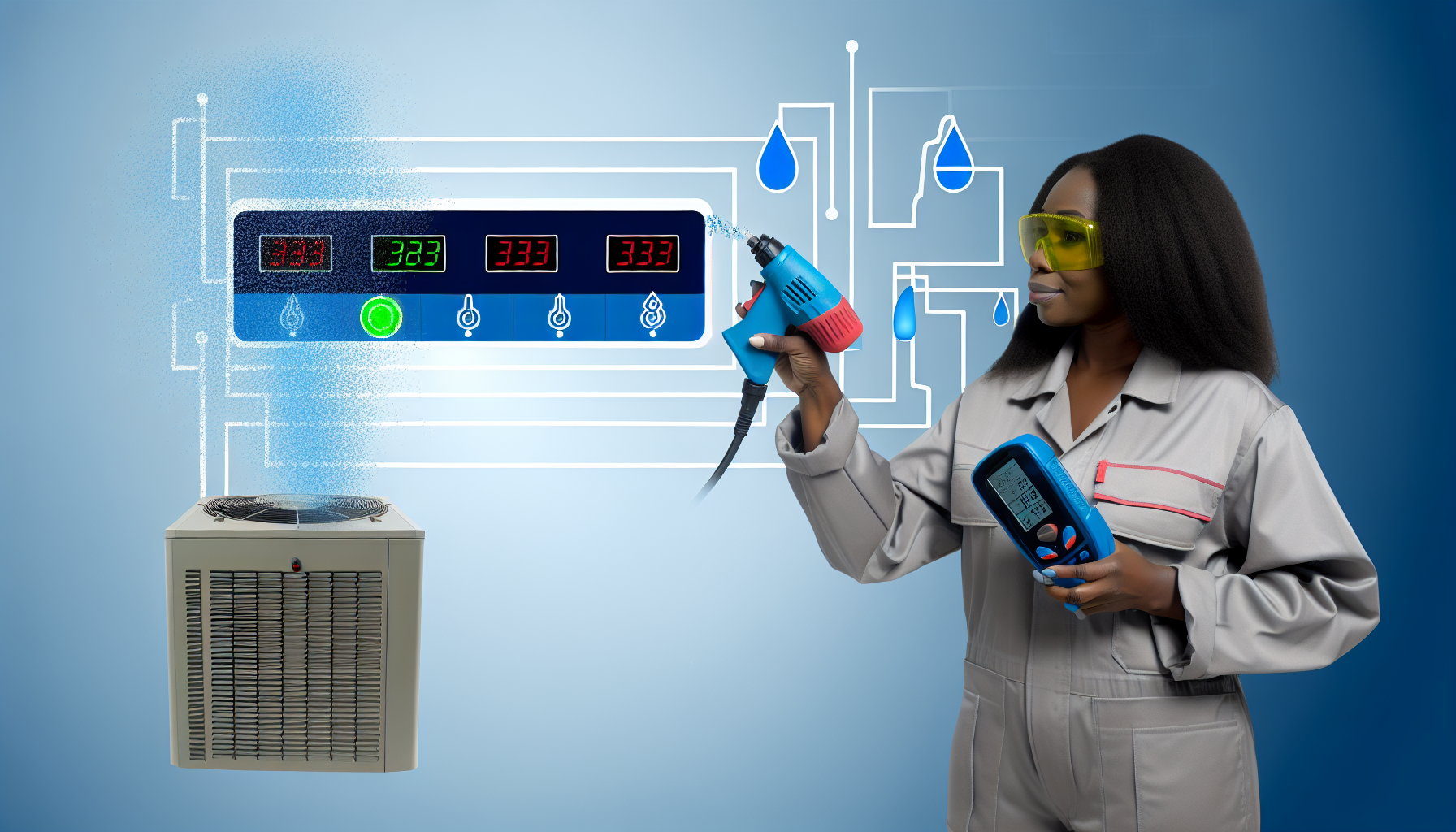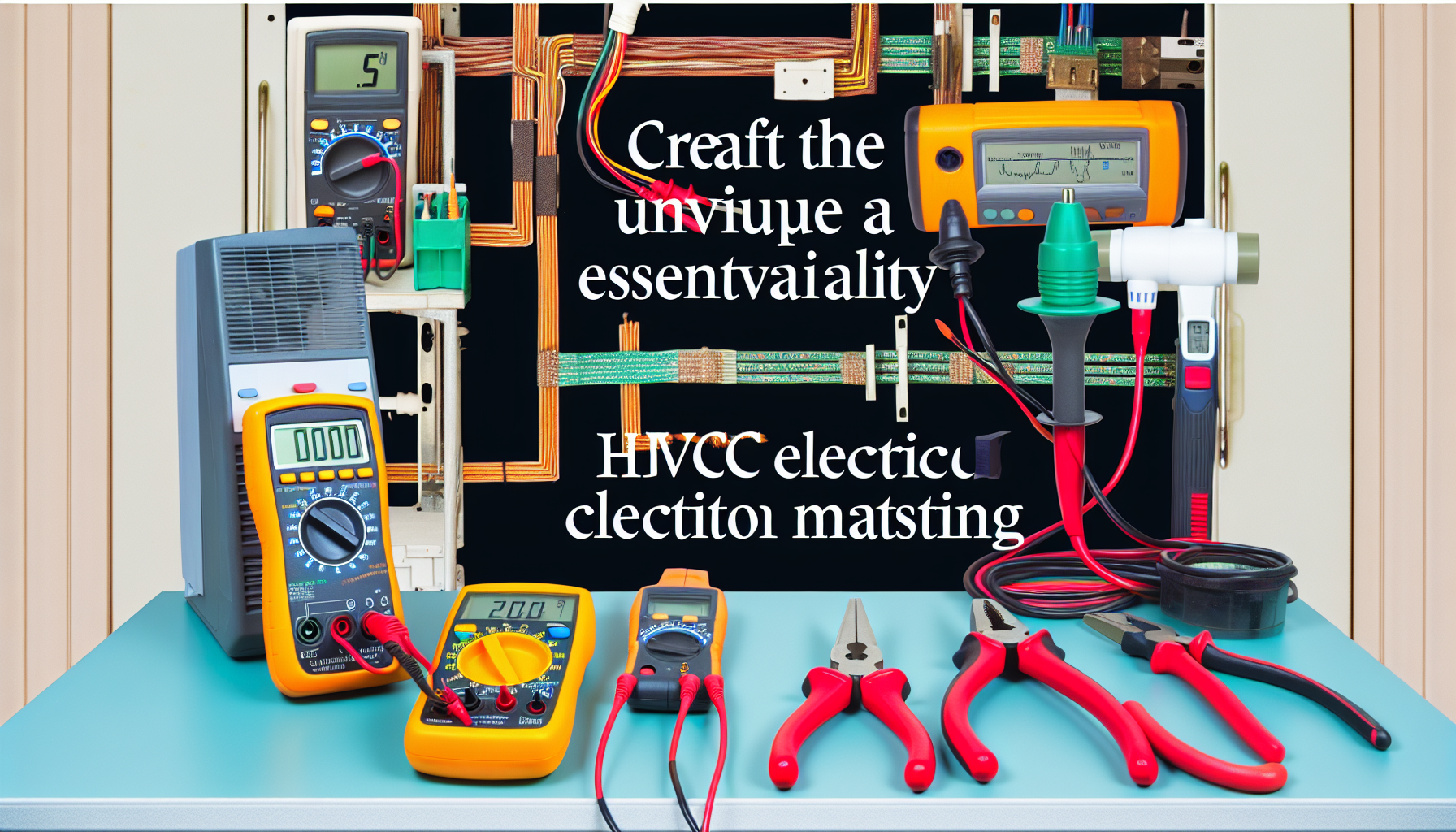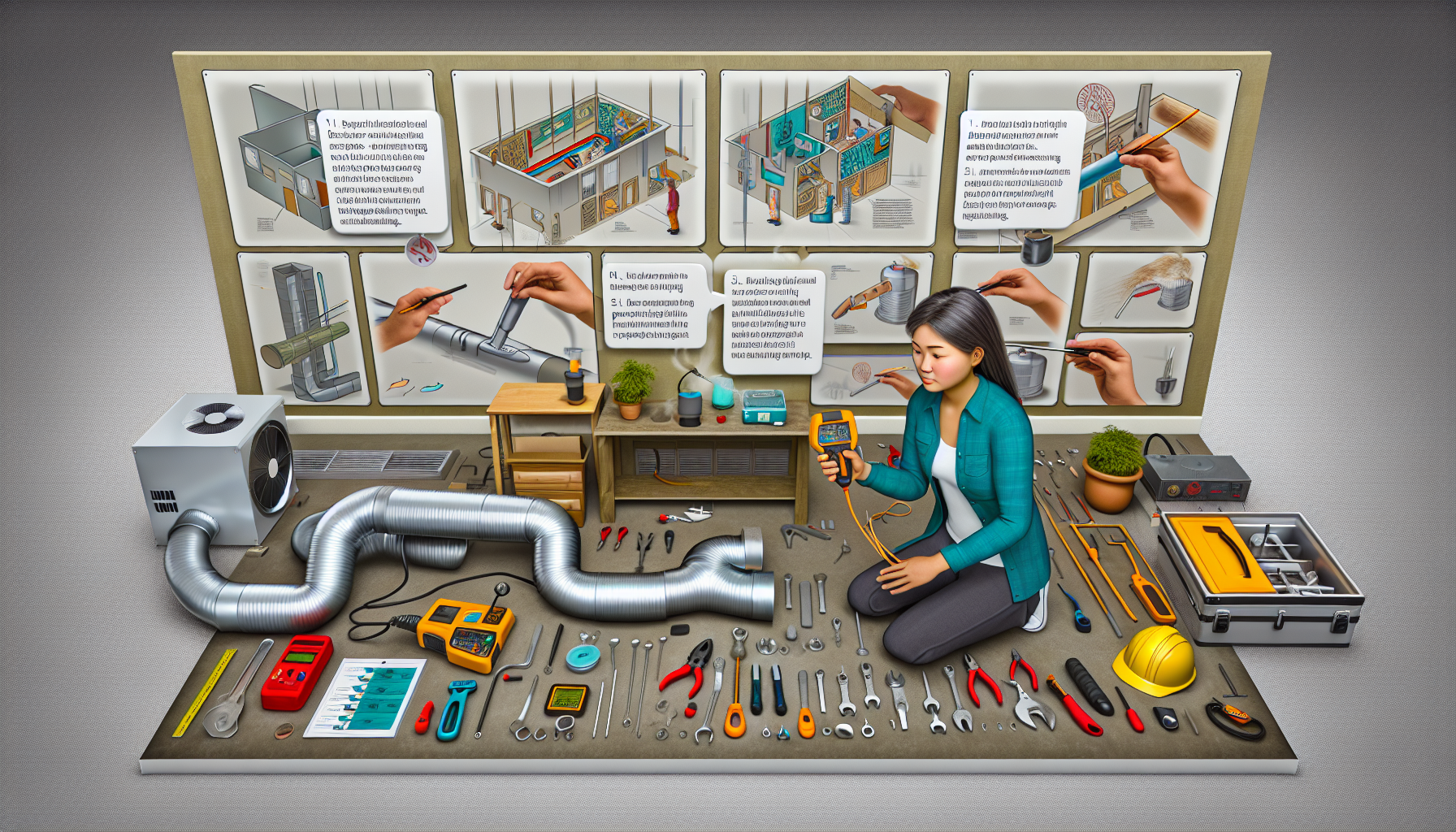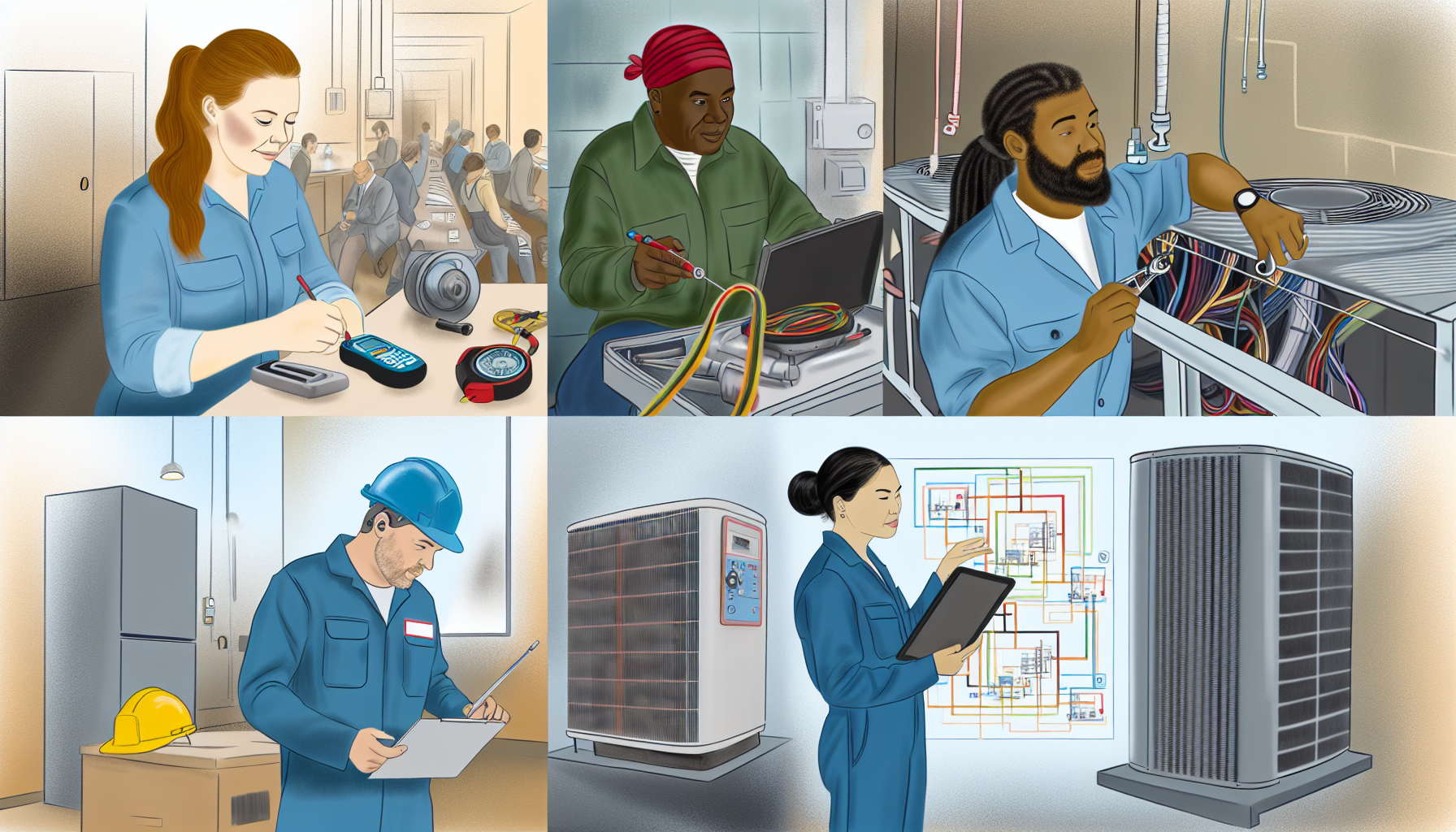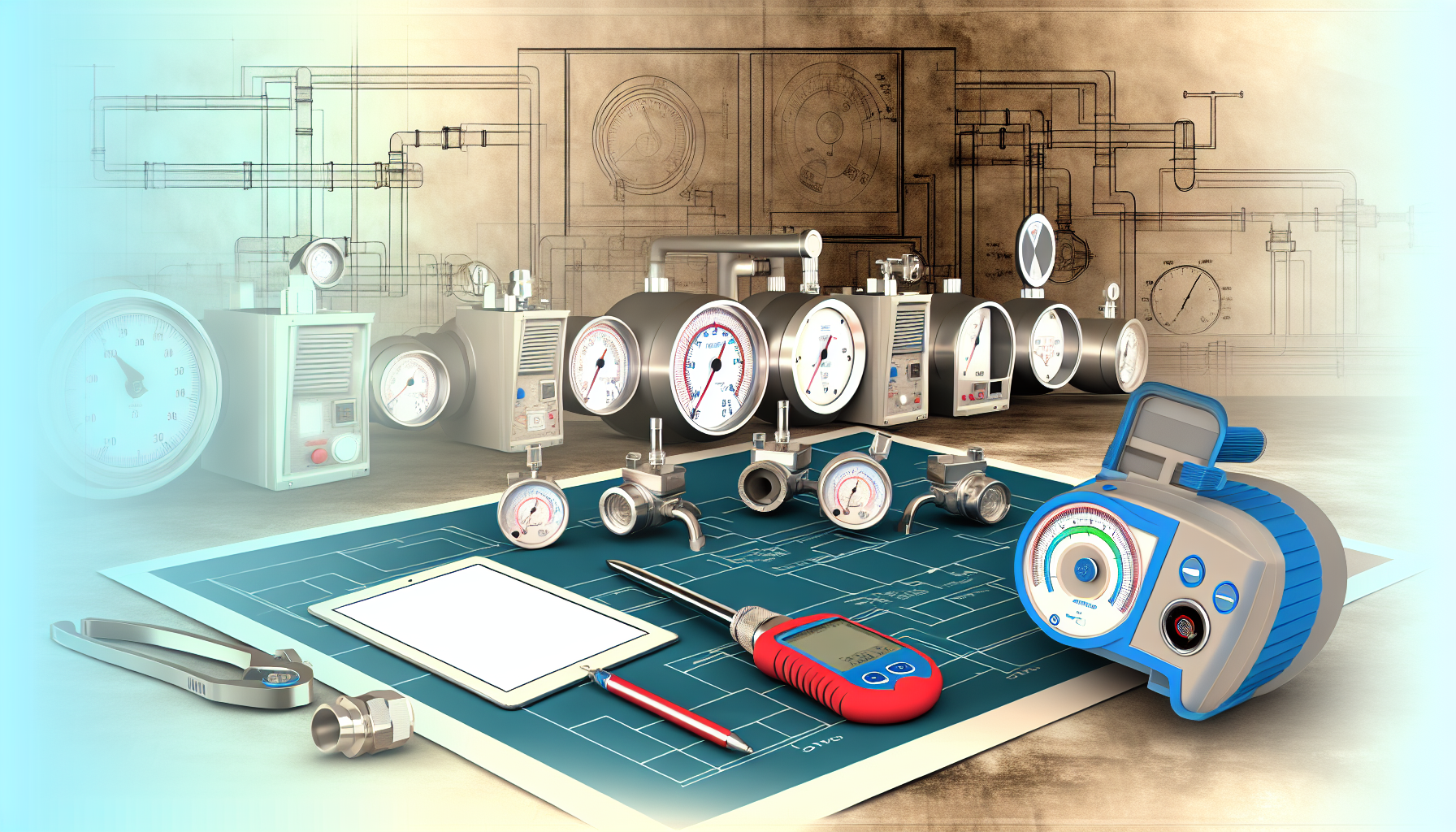When it comes to HVAC (Heating, Ventilation, and Air Conditioning), precision is non-negotiable. Efficient heating and cooling systems are integral to the comfort of our homes and workplaces, as well as to the preservation of a healthy environment. But what ensures that an HVAC system operates at peak efficiency? The answer lies in the use of essential HVAC tools for precise measurement and testing. In this comprehensive guide, we’ll discuss the importance of accurate measurement, how it impacts efficiency, and the role of precise tools in maintaining an optimally functioning HVAC system.
The Importance of Accurate Measurement in HVAC Efficiency
Understanding the significance of measurement accuracy in HVAC systems is crucial. Accurate data allows for correct sizing, calibration, and troubleshooting, ultimately leading to optimal performance. Incorrect measurements can lead to inadequate heating or cooling, increased energy usage, and higher utility bills. Hence, ensuring the precision of measurement should be a primary goal for HVAC professionals and enthusiasts alike.
How to Ensure HVAC Efficiency Through Proper Measurement and Testing
To guarantee the efficiency of your HVAC system, regular measurement and testing should be conducted using specialized tools. These include digital multimeters, infrared thermometers, manifold gauges, and a plethora of other devices designed for the HVAC industry. Proper use of these tools confirms that your system is running effectively and also helps in detecting early signs of potential problems.
The Ultimate Guide to HVAC Tools and Accurate Measurement Techniques
Becoming adept with these tools and mastering the techniques for accurate measurement is essential for anyone responsible for HVAC maintenance. Let’s explore the key tools and their uses:
- Anemometers: Measure air velocity and flow to ensure proper air distribution throughout the space.
- Refrigerant Scales: Used to measure the amount of refrigerant being added or removed from a system, ensuring it operates within the recommended range.
- Thermocouples and Thermometers: Measure temperatures of surfaces, air, and liquids to maintain optimal thermal conditions.
- Manifold Gauges: Check the pressure within the system, which is critical for the operation of the HVAC unit.
- Humidity Meters: Monitor the moisture levels in the air, contributing to comfort and preventing mold growth.
- Digital Multimeters: Diagnose electrical problems by measuring current, voltage, and resistance.
Accurate use of these precision tools can prevent unnecessary energy consumption, thereby enhancing the HVAC system’s lifecycle.
Maximizing Your HVAC System’s Performance with Precise Measurement Tools
To realize the full potential of your HVAC system, investing in high-quality measurement tools is imperative. Ultimately, these instruments enable technicians to fine-tune the systems, which results in maximum efficiency and prolonged equipment life.
The Role of Accurate HVAC Measurement in Reducing Energy Costs
Energy cost-saving is a considerable benefit derived from accurate HVAC measurements. By ensuring that your HVAC system is not overworked due to improper calibration, you can enjoy reduced energy consumption and consequently, lower energy bills.
Precision Tools for HVAC Professionals: Enhancing System Efficiency
For HVAC professionals, the arsenal of precision tools is a testament to their commitment to delivering optimal system efficiency. The correct tools not only make the job easier but also ensure that the work is completed to the highest standard.
The Impact of Measurement Accuracy on HVAC System Reliability and Efficiency
The reliability of an HVAC system heavily rests upon the accuracy of its measurements. Regular testing and calibration using precision tools can prevent unexpected breakdowns and improve efficiency, leading to a reliable HVAC system that provides consistent performance over time.
Advanced Testing and Measurement Tools for Optimal HVAC Operation
With advancements in technology, newer and more sophisticated HVAC tools are regularly introduced to the market. These tools offer greater accuracy and functionality, enabling technicians to deliver a higher level of service in HVAC operation and maintenance.
Boosting HVAC Efficiency: Why Measurement and Testing Can’t Be Overlooked
There’s no overstating the importance of measurement and testing in the role of HVAC efficiency. It’s crucial not to overlook these practices, as they are the cornerstone of ensuring systems are running as intended. With the right tools and an understanding of their significance, one can significantly boost the efficiency of any HVAC system.
FAQ Section
Why is accurate measurement critical in HVAC systems?
Accurate measurement is critical in HVAC systems to ensure they are operating efficiently, maintaining indoor air quality, and reducing energy consumption costs. It also helps in the correct sizing, calibration, and troubleshooting of the systems.
What tools are commonly used for HVAC measurement?
Commonly used tools for HVAC measurement include anemometers, refrigerant scales, thermometers, manifold gauges, humidity meters, and digital multimeters.
How often should HVAC systems be tested and calibrated?
HVAC systems should be tested and calibrated at least once a year to ensure they are operating at their peak efficiency. However, more frequent checks may be necessary depending on the system’s usage and environmental factors.
Can proper measurement and testing of HVAC systems reduce energy costs?
Yes, proper measurement and testing can lead to the correct operation of HVAC systems, which in turn can reduce energy consumption and lower energy costs.
Do professionals need to continuously update their HVAC tools?
While a set of basic tools can last for many years, professionals should stay informed about technological advancements in tools and consider updating their equipment as needed to improve accuracy and efficiency in their work.


